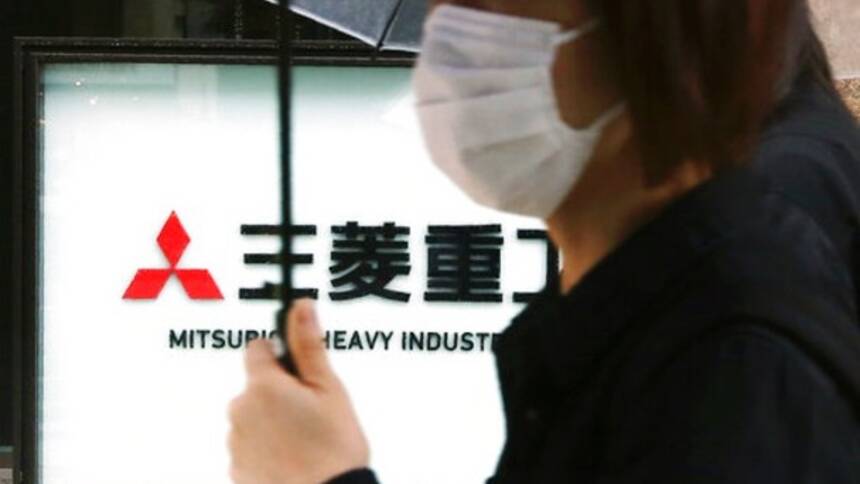[Voice of Hope September 28, 2023](Comprehensive compilation by our reporter Chen Wenyun)
Mitsubishi Motors Plans Complete Withdrawal from China amid Domestic Competition
According to a report by Japanese media outlet “Nikkei,” Mitsubishi Motors, the Japanese automobile giant, is considering a complete withdrawal from the Chinese market due to intense domestic competition. The company has been facing tough competition from rivals and has seen a significant decline in sales of its sports utility vehicle (SUV) range.
Reports suggest that Mitsubishi is currently in talks with its local joint venture partner, Guangzhou Automobile Group (GAC), to exit the car manufacturing business in China. It is speculated that GAC may convert their joint venture factory in Hunan Province into an electric vehicle (EV) production base.
Although Mitsubishi has not yet confirmed its exit plans to the media, a company spokesperson told Bloomberg that discussions are ongoing among shareholders and no final decision has been made.
Back in July, Mitsubishi’s joint venture with China’s state-owned Guangzhou Automobile Group announced plans to lay off employees following a sharp decline in SUV sales. At the time, GAC stated that they would try to restructure the business to salvage the partnership established in 2012. Mitsubishi, too, acknowledged the troubles faced by its Chinese subsidiary and expressed intentions to review various aspects of its business in an effort to revive it.
Earlier this year, Mitsubishi announced a three-month suspension of Outlander SUV production in China, resulting in a $78 million charge due to sluggish sales at the joint venture. Subsequently, in May, the suspension was extended indefinitely. However, Mitsubishi’s spokesperson said that the company is currently engaged in discussions with its Chinese partners to resume operations.
Nikkei’s report suggests that these talks seem to be unfruitful, leading Mitsubishi to consider a complete withdrawal. Japanese automakers, including Mitsubishi, have been experiencing a sales slump in China due to the rapid transition to electric vehicles, which has diminished the demand for gasoline-powered cars. In 2022, Mitsubishi’s sales in China dropped by 60%, with only 38,550 vehicles sold.
Price War in China’s Auto Industry
China’s electric vehicle market has been embroiled in a fierce price war since the end of last year. The Chinese Communist authorities are on the verge of ending subsidies, intensifying the competition.
In October 2022, Tesla China reduced the prices of its popular Chinese models and further increased the discounts in January 2023, resulting in a 14% reduction compared to prices in 2022. Following suit, other Chinese automakers had no choice but to lower their prices. Even Western car companies like Ford and Volkswagen joined the price war. Despite the possibility of a corresponding price war in the West, some cars in China still remain approximately 50% cheaper than those in the United States and Europe.
Economists highlight that domestic auto demand in China has stagnated despite huge state-backed investments in auto production capacity. In the first seven months of 2023, China domestically sold 11.4 million cars and exported 2 million, but the growth primarily came from international markets, with exports increasing by 81%, while domestic sales only rose by 1.7% despite falling prices.
George Magnus, a researcher at the China Center at Oxford University, described the situation as unbalanced, stating that car companies focused more on production and supply than on the demand side. This has led to excess inventory and the need to slash prices in order to desperately move the inventory.
Further Details on China’s Price War
Data from the China Passenger Car Association reveals that China’s annual automobile production capacity, which includes internal combustion engine vehicle factories, is projected to reach 43 million units by the end of 2022. However, the factory utilization rate stands at a paltry 54.5%, down from 66.6% in 2017.
Simultaneously, wage cuts and layoffs in the auto industry and its suppliers have adversely affected the living standards of many. In response, the Chinese Communist authorities are keen to boost consumer confidence, which is currently at historical lows.
As car prices continue to plummet, Chinese auto suppliers are also facing a harsh environment. In June, the weighted average transaction price of electric and hybrid vehicles dropped by 15% from January to 185,100 yuan (approximately US$25,300).
China Automobile News, the official media outlet of the Communist Party of China, estimates that there are more than 100,000 automobile suppliers in the country. A survey conducted by Gasgoo.com, an auto parts trading platform, in March revealed that 74% of the nearly 2,000 respondents claimed that automakers had required them to reduce costs. More than half of the companies were asked for cuts ranging from 5% to 10%, higher than the previous years’ target of 3% to 5%. Furthermore, nine out of ten companies anticipate more cost-reduction requests this year. Meanwhile, EV battery suppliers have also been forced to lower their prices for automakers.
It is worth noting that this article or program was edited and produced by Voice of Hope. Therefore, when reprinting, it is essential to indicate Voice of Hope, include the original title and link.
Editor in charge: Zhang Lili.
